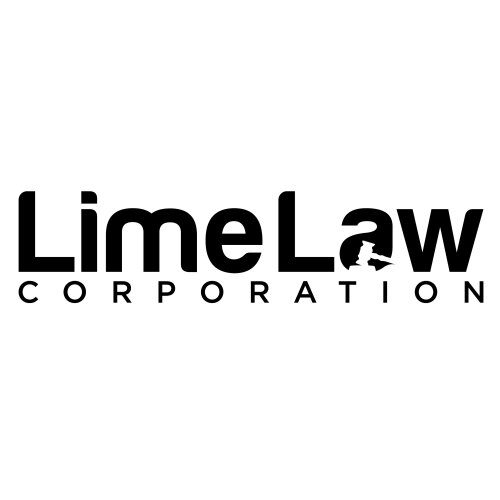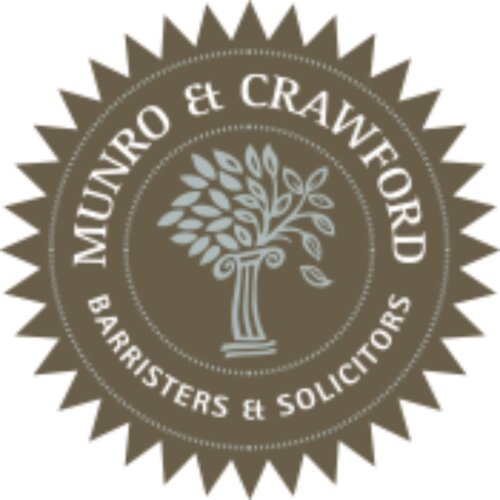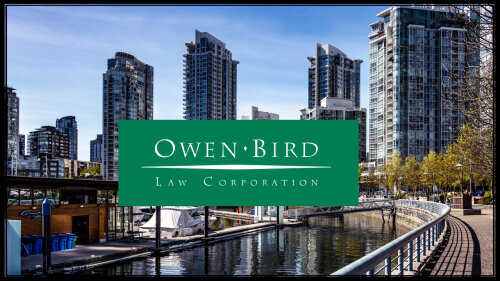Best Mortgage Lawyers in Vancouver
Share your needs with us, get contacted by law firms.
Free. Takes 2 min.
Free Guide to Hiring a Real Estate Lawyer
List of the best lawyers in Vancouver, Canada
About Mortgage Law in Vancouver, Canada
Canada's mortgage laws are governed by provincial laws, and in Vancouver, they fall under British Columbia's jurisdiction. These laws establish the rules and regulations for mortgage lenders and borrowers, including aspects like mortgage registration, interest rates, repayment terms, and foreclosure proceedings. Given the complicated nature of these rules, it's essential to have a clear understanding before entering into a mortgage contract.
Why You May Need a Lawyer
Engaging a lawyer can be beneficial in several mortgage-related situations. If you are purchasing a property and need to secure a mortgage, a lawyer can help interpret the terms and conditions of the contract and ensure you are aware of the potential implications. If you are facing financial difficulties and are at risk of foreclosure, a lawyer can aid in negotiating with the lender and potentially stop or delay the foreclosure process. Lawyers can also provide counsel on mortgage disputes and provide advice on mortgage fraud.
Local Laws Overview
In British Columbia, the crucial governing laws for mortgages include the Property Law Act and the Land Title Act. The Property Law Act sets regulations on payment priorities in the case of a borrower's default. On the other hand, the Land Title Act includes regulations on the registration and discharge of mortgages. Vancouver also has its property transfer tax, applying when property changes hands. The tax applies even if the transfer occurs because of a foreclosure.
Frequently Asked Questions
1. Can I get out of a mortgage contract once I have signed it?
Modifying a signed mortgage contract requires the consent of all the parties involved. Depending on the agreement, some lenders may charge a prepayment penalty if the mortgage is paid off earlier than agreed.
2. What are the consequences if I can't pay my mortgage?
If you can't make your mortgage payments, the lender can start foreclosure proceedings. This means you could lose your home and still owe money on your mortgage if the sale proceeds of your home are not enough to cover the debt.
3. Can a bank force me to sell my property?
In the case of multiple defaults on your payments, a bank or lender has the right to issue a foreclosure on your property. It can then be sold to recoup the lender's loss.
4. Is there a way to lower my mortgage payments?
Option to lower mortgage payments usually depends on your lender's policies and your mortgage contract provisions. This could involve refinancing your mortgage or perhaps restructuring the payment strategy.
5. Do I need a lawyer to handle a dispute with a mortgage lender?
It's typically advisable to consult a lawyer if you are facing legal disputes with your lender or are at risk of foreclosure. A lawyer can provide advice on your rights and potential strategies.
Additional Resources
The British Columbia government's official website provides numerous resources about local property and mortgage laws. Additionally, the Law Society of British Columbia can provide referrals to law firms specializing in mortgage law. Also, various non-profit organizations offer free legal advice on housing and mortgage issues.
Next Steps
If you're in need of legal assistance, your first step should be to contact a local law firm that specializes in mortgage law. Be prepared to bring any relevant documents and write down any questions you may have ahead of your consultation. If you're dealing with financial difficulties and cannot afford a lawyer, look for non-profit organizations that offer free legal consultation.
Lawzana helps you find the best lawyers and law firms in Vancouver through a curated and pre-screened list of qualified legal professionals. Our platform offers rankings and detailed profiles of attorneys and law firms, allowing you to compare based on practice areas, including Mortgage, experience, and client feedback.
Each profile includes a description of the firm's areas of practice, client reviews, team members and partners, year of establishment, spoken languages, office locations, contact information, social media presence, and any published articles or resources. Most firms on our platform speak English and are experienced in both local and international legal matters.
Get a quote from top-rated law firms in Vancouver, Canada — quickly, securely, and without unnecessary hassle.
Disclaimer:
The information provided on this page is for general informational purposes only and does not constitute legal advice. While we strive to ensure the accuracy and relevance of the content, legal information may change over time, and interpretations of the law can vary. You should always consult with a qualified legal professional for advice specific to your situation.
We disclaim all liability for actions taken or not taken based on the content of this page. If you believe any information is incorrect or outdated, please contact us, and we will review and update it where appropriate.














